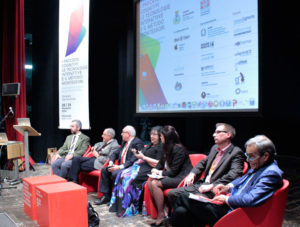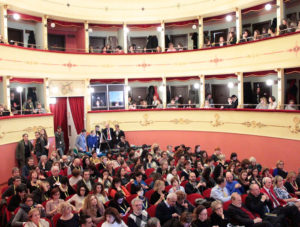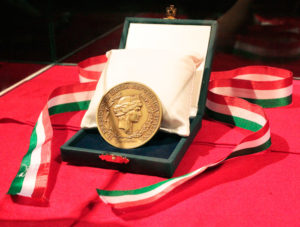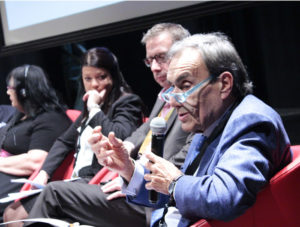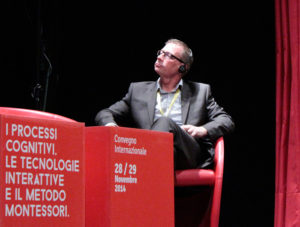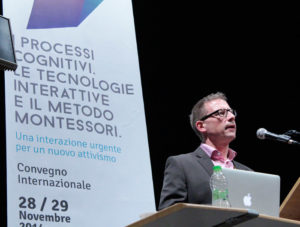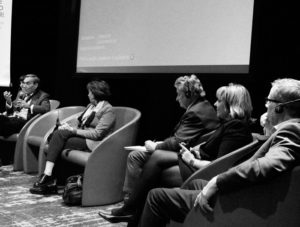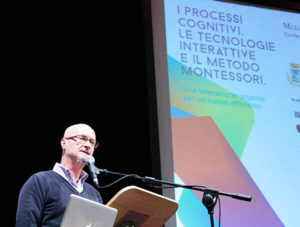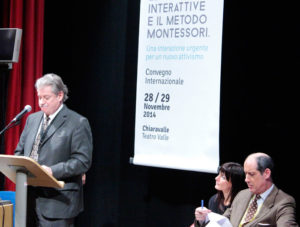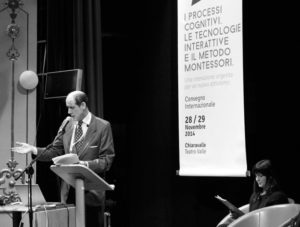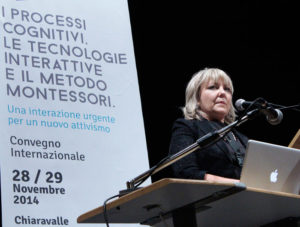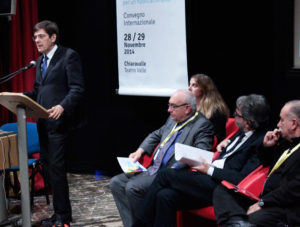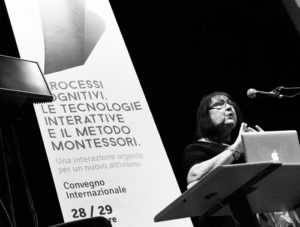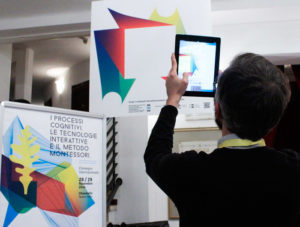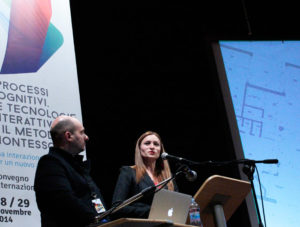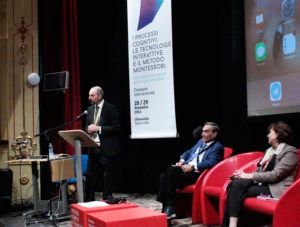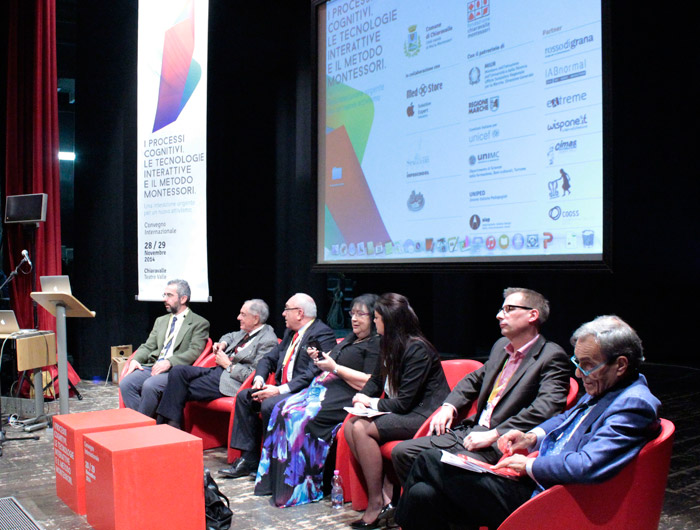
01 Dic Cognitive processes, interactive technologies and the Montessori method
Project description
COGNITION & TECNOLOGY
The web indulges in this transparency front, orientating itself in always more friendly landscapes (so called user friendly), free, open to collaboration and communication relationships; like blogs or social networks (Facebook, Twitter), and that’s only the 2.0 web or the idea of the 3.0 (Second Life). With the new technologies they generate environment for the official education (academic, scholastic, professional) and create their own Personal Learning Environment (PLE).
The MOOC (Massive Open Online Course) phenomenon is taking off. Courses created for long-distance education to attract the highest number of users. Complexity and criticality accompany modern perception of knowledge and its construction, with a particular care to the individual paths that express through people’s backgrounds and to the social and socio-cultural nature of their knowledge and competence.
The wide scenario of the technologies, in an increasing effective media contexts, is at the origin of the mutation of the shape of our thought that, if in one hand increases the understanding of the nature and purpose of an education area, meaning the building of knowledge, on the other one it focuses the attention to the mental process of the accumulation of knowledge.
New technologies are fundamental in the neuro and cognitive sciences, that find a fertile ground in the researches and theorisations about the cognition of their shape and dimension when appearing, following the path of the mind biologists of the second half of the 20 Century. The principals of social knowledge, built, autopoietic, reticular, incidental etc. find fundamental theoretic help in modern assets of multimedia and It, where there’s the urge of critical knowledge of facts and research of locations and instruments orientated to the most integrated and intense activity of the cognitive processes.
They are interesting grounds that insist on a plurality of interdisciplinary areas on an asset that has the neurological, pedagogical and sciences as protagonists converging towards the paradigm of cognitive interactivity.
Speakers
Prof. Lamberto Maffei
Accademia Nazionale dei Lincei
Dott. John Hurst
Apple Distinguished Educator
Prof.ssa Angela Fawcett
Accademy Director University Sheffield and Singapore
Prof. Luciano Mazzetti
Centro Internazionale Montessori, Perugia
Prof. Piero Crispiani
Università di Macerata
Prof. Raniero Regni
Università LUMSA, Roma
Prof. Giuseppe Alessandri
Università di Macerata
Prof. Pino Grimaldi
Accademia di Napoli
Dott. Prof. Giuseppe Augusto Chiarenza
Neuropsichiatra infantile, già Primario Ospedale di Rho, Milano
Prof.ssa Dorota Siemieniecka
Nicolaus Copernicus University Torun, Polonia
Prof. Richard A. Ungerer
Association Montessori Society, New York
Dott. Fabrizio Petri
Diplomatico e scrittore, Roma
Prof. Benedetto Scoppola
Università di Torvergata
Presidente Opera Nazionale Montessori
Dott.ssa Eleonora Palmieri
Pedagogista
Dott.ssa Cristina De Angelis
Pedagogista
Dott.ssa Annalisa Piaggesi
Pedagogista
Case History
Tabula Fabula
Flowerssori
Istituto Comprensivo “Bruno da Osimo”
Cognitive processes, interactive technologies and the Montessori method.
International conference
28th, 29th November 2014 – Chiaravalle
Video Day 1
https://youtu.be/FoA59tJfni4?t=1h42m39s
Videos Day 2
https://youtu.be/4J8IHEgkiAU
https://youtu.be/EUqmDgZbtHE


